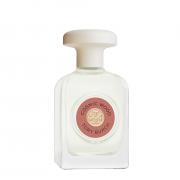What ingredients help make a heart healthy? Sussex GP Dr Tizzy Camilleri tells us the answer
One of the fundamental ways to help your heart is by ensuring that blood vessels are not clogged up with fatty deposits (atheroma),which restricts blood flow to the heart and reduces the amount of oxygen it can receive. This is one of the main causes of angina and heart attacks. The key ways we can help do this is through our diet and exercise and by not smoking. A typical weekly diet should contain at least five portions of fruit and vegetables per day, at least two portions of fish per week (one of which should be oily), plenty of fiber and a low salt and sugar content.
Fruit and vegetables contain various minerals and vitamins, which are essential for a healthy body, as well as containing many anti-oxidant ingredients, which help prevent plaque build up. It is surprising how easy having five portions of fruit and vegetables can be; 1 glass of fresh fruit juice (150ml) equates to one portion and one large fruit such as an apple, pear, banana or orange equates to another. About two tablespoons of any vegetable or one tablespoon of dried fruit also qualifies as a portion.
Fish is a rich source of omega 3 fatty acids, which as well as being proven to help with mood, concentration and memory also helps reduce the risk of atheromatous plaques building up in your arteries.The fat content of any diet is also an important factor. Not only is it important to reduce your fat content as this will help prevent weight gain, but it is also important to appreciate that there are different types of fats, “good” ones and “bad” ones, which increase your risks of clogged up arteries. It is important to try and limit the saturated fats (“bad” fat) such as butter, lard and some margarines for healthier unsaturated fats such as olive oil, sunflower oil and low fat spreads.
Sugar is well known for being bad for your teeth but it also increases the calorie content of foods and drinks. Salt is another major additive in food, which should be regulated as it has been shown to significantly increase your blood pressure, thereby putting more strain on the heart. Currently the guidelines state that we should not have more than 5-6 grams of salt per day. However evidence has recently shown that the average adult now has an intake of 8.5g per day and it has been shown that if we can reduce the average intake to 3.5g per day by 2025 then there would be a significant reduction in the incidence of heart disease and stroke. Another big area in healthy living is exercise. The current recommendations are that we should do 30 minutes of exercise at least five days a week. These sessions of exercise do not need to be done in one go but instead can be made up by, for example, two lots of 15 minute walks a day. As long as the exercise you do makes your heart rate increase and makes you mildly short of breath then it counts. We all know that it isn’t possible to go for a run or go swimming every day, but doing housework, DIY, gardening or walking to the shops instead of driving all counts. An astonishing recent statistic has come out which has shown that shoppers spend around 26% of their average weekly grocery bill on chocolate, alcohol, biscuits, crisps and soft drinks. This doesn’t take into account the mid-week shops, coffee breaks or other small purchases made during the week. So next time you go into the supermarket or make a list of things to buy, just consider whether you have all the right ingredients to help keep your heart healthy!
About Dr TizzyMy name is Dr Tiziana Camilleri, better known by all my patients and colleagues as Dr Tizzy. I am a GP in Sussex having moved to the county four years ago when I decided to start my specialist training. During that time I have worked in the children’s hospital in Brighton (The Royal Alexander Hospital), the Sexual Health clinic (the Claude Nicol Centre), Brighton’s Royal Sussex County Hospital and Haywards Heath’s Princess Royal Hospital.


























